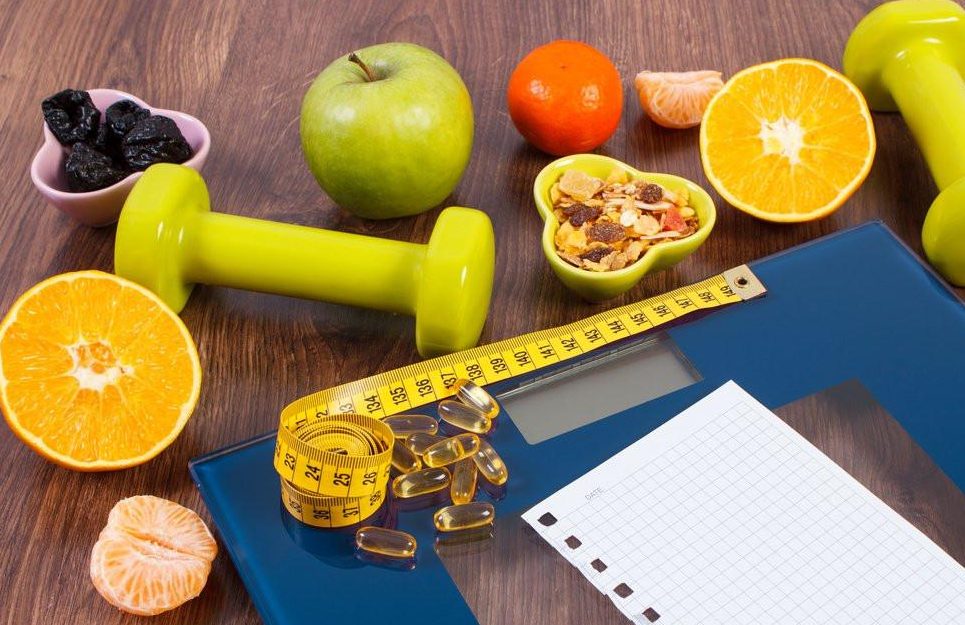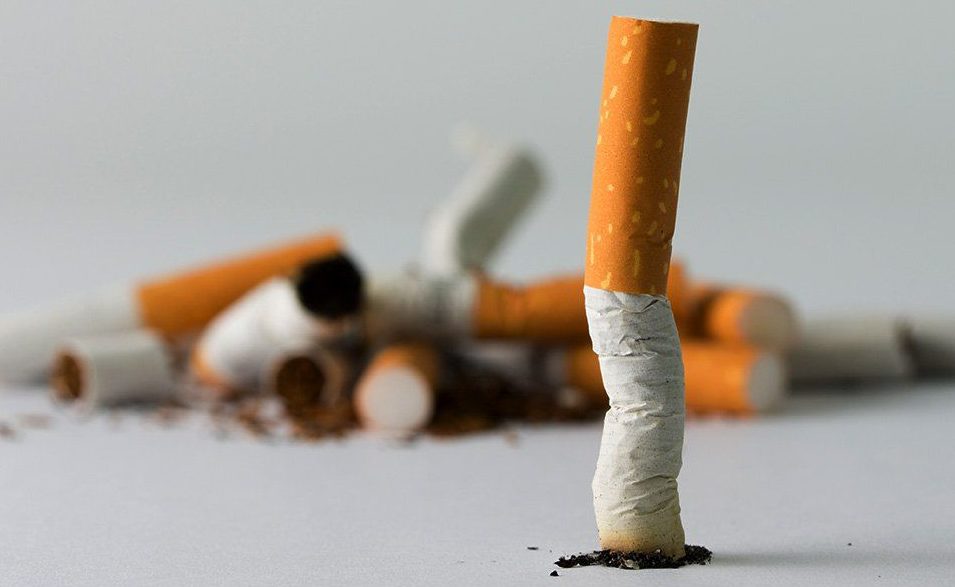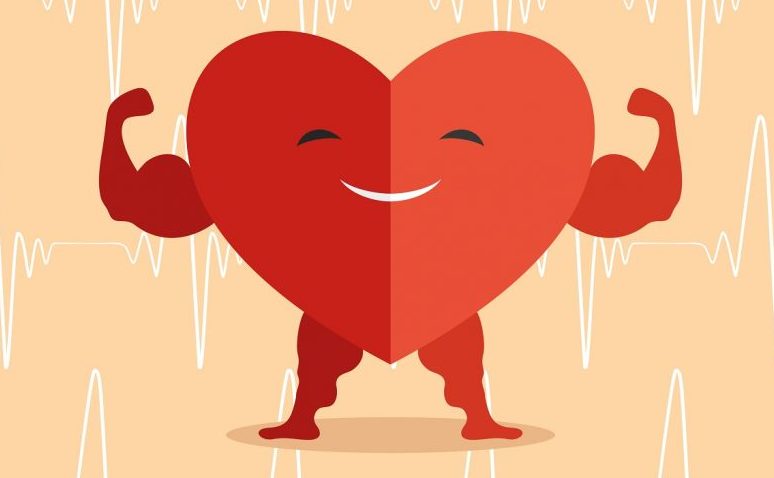A healthy heart is central to overall health. A healthy lifestyle at any age can prevent heart disease and reduce the risk of heart attack or stroke. You are never too old or too young to take care of your heart. Of course, the sooner you start making healthy choices, the longer you’ll reap the benefits. But kicking a bad habit to boost your health can make a difference, even if you’ve already had a heart attack.
Healthier food choices and exercise are two of the best ways to promote heart health. There are many other things you can do to reduce your risk of heart disease. Factors that put you at higher risk for heart disease include:
- smokes.
- hypertension.
- Obesity/overweight.
- high cholesterol.
- Inactivity (not moving).
- Family history of heart disease (especially in a parent or sibling).
The good news is that the risk can be reduced through lifestyle changes. Even if your family has a history of heart disease, the power of prevention is in you.
Ways to improve your health
You have direct control over many things that can affect your heart health. It is up to you to decide how seriously you take this responsibility. Some people find it easy to adopt a healthy lifestyle. Others do so only after a diagnosis of heart disease symptoms such as high blood pressure or high cholesterol.

Whatever your inspiration, knowing the benefits of a healthy heart is worth the effort. In fact, your entire body will be better for it. Good overall health also protects you from type 2 diabetes, asthma, joint pain and many other chronic diseases and conditions. It may even reduce your risk of cancer. Plus, a healthy lifestyle that includes a healthy diet and regular exercise has been shown to improve your mood. You’ll have more energy and less stress.
If you’re not sure where to start, try adding just one healthy aspect to your life for now. When you feel like you’re gaining control, try adding one more, and then another. Soon you’ll feel empowered instead of overwhelmed.
Make healthy food choices
Balance is the key to long-term healthy eating. Your diet should consist primarily of fruits, vegetables, whole grains, nuts and lean proteins. If that’s how you eat most of the time, it’s okay to indulge once in a while.

It’s important to allow yourself to eat something you want from time to time. So don’t feel guilty for treating yourself as a reward for eating healthy. Just make sure you don’t treat yourself too often.
When choosing vegetables, pay attention to color. A colorful plate with plenty of red, orange, yellow and dark green vegetables provides essential vitamin and mineral intake.
Try to reduce or even eliminate highly processed foods. Heavily processed foods are packaged and packaged foods, especially those that are ready-to-eat (think cookies, chips, and even drive-thru meals). Also, watch out for low-sodium foods.
Replace soda and energy drinks with water. Soda and energy drinks can be surprisingly high in sugar. Drinking water instead of these can significantly improve your health. Aim to drink at least 8.8 ounces of water each day.
Watch your weight
Being obese or overweight is not healthy. The more weight you gain, the higher your body mass index (BMI). Your BMI is a measure of your body fat based on your height and weight. The higher the BMI, the higher the risk of developing high blood pressure, high cholesterol and high blood sugar. Obesity also puts you at risk for breathing problems, gallbladder disease, liver disease and even cancer.
A healthy diet combined with an exercise program is the best way to lose weight. Even a small weight loss can have a major impact on your health. According to the American Heart Association (AHA), losing just 5 to 10 percent of your body weight can reduce your risk of heart attack or stroke.
Be positive
You don’t have to be a gym membership or buy fancy equipment to work out. The key is to get up and move. Go for a walk. Take the stairs to work. Do some push-ups or sit-ups. dance. The U.S. Department of Health and Human Services recommends that adults get at least 2 hours and 30 minutes of moderate aerobic activity per week. Children should be active for at least an hour each day.
Aerobic exercise directly affects your heart. Your heart is a muscle, and exercise strengthens it. A strong heart pumps blood more efficiently, delivering oxygen and nutrients to the rest of the body. Exercise can reduce the risk of plaque buildup in the arteries. Plaque is a waxy substance that blocks arteries and reduces blood flow to the heart. If plaque builds up too much, it can even block arteries. This can cause a heart attack.
Know your number
Every adult should know their blood pressure and cholesterol levels. From the age of 18, you should have your blood pressure checked at least every 3 to 5 years. There are usually no symptoms associated with high blood pressure. The best way to be sure is to check.
Young adults 20 and older who smoke or have a family history of heart disease should have regular cholesterol screenings. Otherwise, women should have their cholesterol checked regularly starting at age 45. Men should start at 35. If you have been diagnosed with high blood pressure or high cholesterol, you should also be screened for diabetes.
Stop smoking
Nothing new here. Smoking is bad for you. It causes cancer. It can damage your lungs. It’s also bad for your heart. Smoking increases the risk of heart disease. It can damage the lining of your arteries. Numerous studies have proven that smoking is one of the leading causes of coronary artery disease leading to heart attacks.

If you currently smoke, now is a good time to quit. There are medications that can help, as well as other smoking cessation aids, such as nicotine gum and patches. Vaping is not a tool to help you quit smoking, so don’t trade smoking for vaping. Ask your doctor to recommend resources. Also, try to avoid passive smoking.Don’t take gums for granted
Many people are unaware that there is a link between oral health and heart disease. In fact, periodontitis (gum disease) has been linked to many health problems, including premature birth, arthritis, and diabetes.
It’s not clear whether heart disease causes gum disease or vice versa. Some medical experts believe that the bacteria that cause gum disease travel from the mouth to the body. As they spread, they increase inflammation. This increased inflammation can trigger or exacerbate inflammation such as heart disease. Preventing gum disease contributes to your overall health. Regular brushing, flossing and dental check-ups are the best ways to check your oral health.
If you already have gum disease, you should schedule regular cleanings with a periodontist (a dentist who specializes in gum disease and oral inflammation). There is strong evidence that managing gum disease can help reduce the risk of heart disease.
Stop pressure
Managing stress can help reduce the risk of heart attack and stroke. Stress is often associated with high blood pressure. Chronic stress exposes your body to elevated levels of stress hormones, which is also bad for your health.
Everyone handles stress differently. How you cope with it can directly affect your health. There are some breathing exercises that can help you manage stress. Meditation has also been shown to be an effective way to manage stress. Exercise is also a great way to cope. A bad way to deal with stress is to smoke, drink, or let it interfere with your sleep.
Things to consider
Heart disease remains the leading cause of death in the United States. Heart disease often leads to a heart attack or stroke.
Heart attack
A heart attack (also called a myocardial infarction) happens when blood flow to the heart is blocked. This blockage is caused by a buildup of plaque (fat and cholesterol). During a heart attack, part of the heart muscle is damaged and sometimes destroyed.
A heart attack can be fatal. If you have a heart attack, the sooner you get medical treatment, the better your chances of surviving. Heart attack treatments vary. Depending on the severity of the seizure, your doctor may need surgery. During surgery, he or she will try to clear or repair the blocked artery. Your doctor may also prescribe medicines to thin your blood and lower your blood pressure.
stroke
A stroke occurs when the blood supply to the brain is blocked. This can happen if a vein becomes blocked or ruptured. The blockage cuts off the oxygen supply to the brain, causing brain cells to die.
A stroke can be fatal. If you have had a stroke, the sooner you get treatment, the better your chances of surviving. Prompt medical attention can also help prevent the side effects of a stroke. Side effects include temporary or permanent paralysis and speech problems. Treatment for stroke depends on the type of stroke. In some cases, surgery is required. In other cases, the stroke responds to medication.
See a doctor
Depending on your age, you should have regular blood pressure and cholesterol levels checked by your doctor. These are two indicators of heart disease. If you’ve been diagnosed with heart disease, your doctor can prescribe a treatment plan that includes a healthy lifestyle. It may also contain prescription medicines to control cholesterol or high blood pressure.

If you think you are having a heart attack or stroke, you should call 911 right away. Heart attack symptoms vary, but common signs of a heart attack include:
- Chest discomfort. This could be pressure, tightness, bruising or pain in the middle of the chest. Usually takes more than a few minutes. Sometimes it goes away and comes back.
- Pain in one or both arms. Sometimes this pain is not limited to your arm. You may experience pain in your jaw, neck, back, or abdomen.
- This happens suddenly and feels like indigestion.
- Shortness of breath.
- cold sweat.
- Dizziness.
Stroke symptoms are often easier to recognize than heart attack symptoms. According to the AHA, you can get F.A.S.T. identification as follows:
- Saggy face – Is one side of the face drooping or numb? Ask the other person to smile. Does the person have an irregular smile?
- Arm Weakness – Is your arm weak or numb? Ask the person to raise their arms. Did an arm float down?
- Speech Difficulty – Is speech slurred? Can’t speak or have trouble understanding each other? Ask the person to repeat a simple phrase, such as “The sky is blue.” Are the sentences repeated correctly?
- Time to call 911 – If anyone has any of these symptoms, even if symptoms go away, call 911 and get them to the hospital right away. Check the time so you know when the first symptoms appear.
